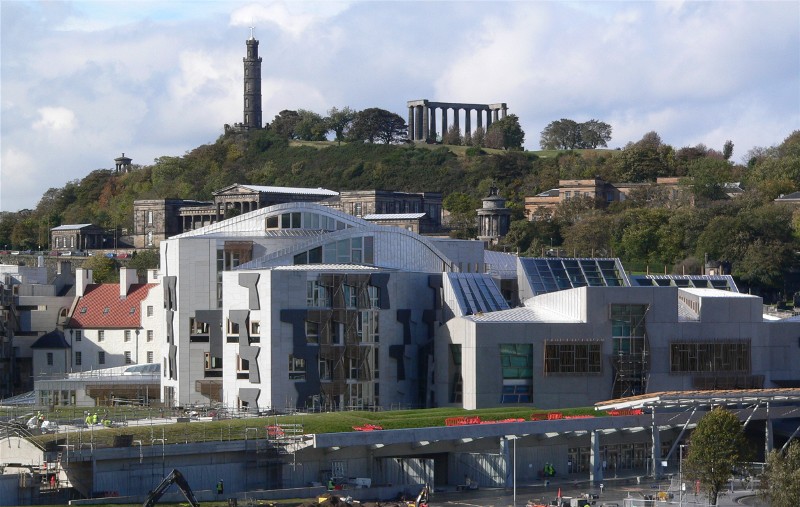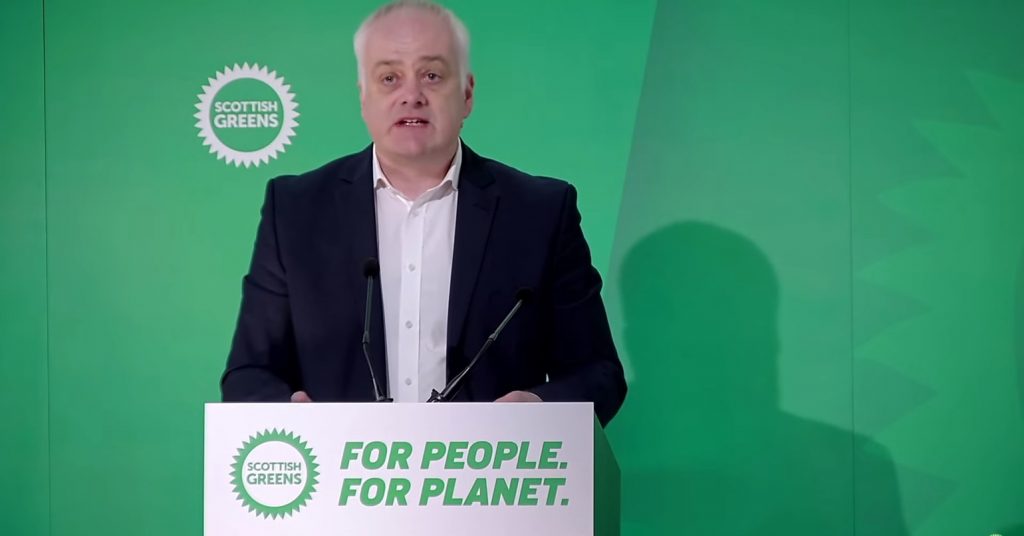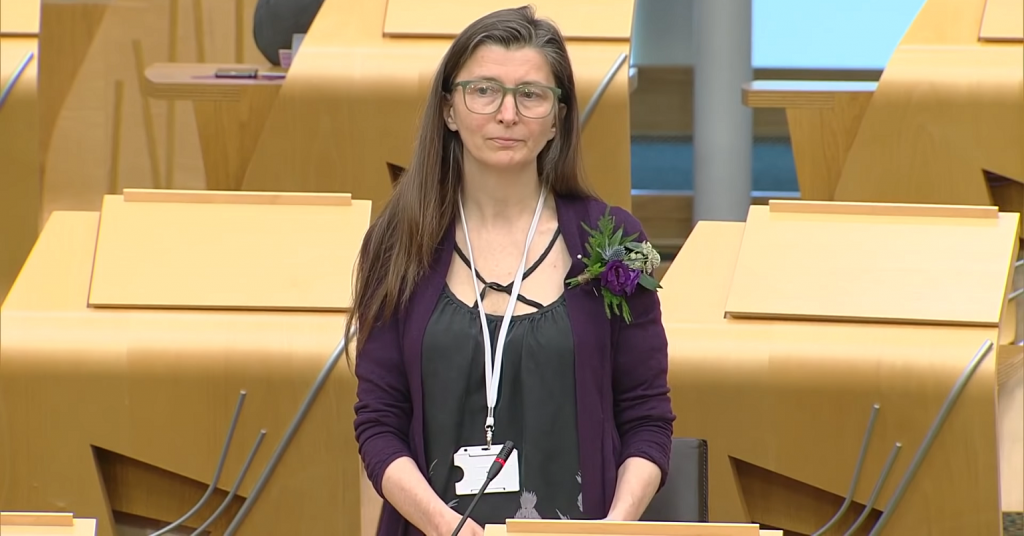Why Indy Ref 2.0 is not ‘inevitable’

The consensus is that a second independence referendum is now inevitable. The SNP assertion in its 2016 manifesto of the Scottish Parliament’s right to hold a referendum “if there is a significant and material change” has taken on renewed relevance, especially since the only quoted example was “being taken out of the EU against our will”.
After the 62-38 vote to Remain in the EU in Scotland, Brexit has highlighted the democratic deficit once more. This is in addition to Trident renewal and the proposed scrapping of the Human Rights Act. Post Brexit polling has shown a 10 point bounce for independence. In this context, Alex Salmond has said that Indyref2 is ‘inevitable’ if we can’t stay in the EU and that this will have to take place within the Brexit timetable.
Unfortunately, there are a number of factors which could prevent a new referendum from taking place. These include: debates over the timing for Indyref2; the tactics currently being adopted in lieu of a new referendum and finally the drawn out negotiations over Brexit between Sturgeon, May and the EU.
Timing
Despite being obviously committed to independence, Nicola Sturgeon is extremely cautious and very guarded in her language. On the possibilities post Brexit, she states: “If we find that our interests can’t be protected in a UK context, independence must be one of those options”. Similarly: “Everything, up to and including independence, is on the table”
Therefore, even once Scotland is refused continued membership of the EU, it is still seen as an “option” rather than a certainty. This is presumably why Salmond saw fit to directly contest this by saying that without EU membership within the UK, a second referendum was “not just on the table, but inevitable”
This proxy war between Salmond and Sturgeon over tactics is also evident in the Depute Leadership campaign, whose main dynamic exposes the caution of Nicola Sturgeon in relation to the increasing impatience of elements of the SNP membership. In short, to win the contest, you have to make loud noises about Indyref2 and the certainty of independence. Whilst all the candidates are making these noises, the eventual victor will influence how likely Indyref2 actually is. Tommy Sheppard is the most reliable in this respect, given his desire to mobilise the grassroots of the party and his aim of a clear campaigning focus.
Tied in to the discussion about timing is the requirement of elements of the SNP and the Yes movement to have a clear 60/40 in favour before we can safely call it, lest the indy flame be extinguished forever. However, to consistently get 60/40 for a sustained period is a serious ask. Waiting for the perfect time to strike is just as likely to mean we never get independence as acting decisively would be. In addition, it is not too far-fetched to say the 10 point bounce may be temporary, especially if we do not campaign whilst everything is still in flux and whilst people are most open to our ideas.
Former SNP leader Gordon Wilson has said that he is “sceptical of the chances of victory in a premature second attempt” and warned against starting a campaign “with no timescale to work to”. Ronnie Cowan has further argued that we should “take a break” and wait for a “clearer picture” to emerge post Brexit. Whatever the intent, comments like these have the effect of encouraging passivity within the Yes movement and of limiting the influence of more radical voices (since we don’t have access to the media in the same way, what else can we do to be heard but campaign?)
Although the SNP conference in October will debate independence, it seems unlikely that anything will be any “clearer” by that point. At the risk of considerable understatement, the uncertainty over post Brexit discussions could last a very long time. It is worth remembering that this whole process is unprecedented and two years may well be a minimum rather than a maximum timescale.
So, given the importance of the 60% trigger to some key players, the tactics deployed now matter a great deal and may well be undermining the case already.
Tactics
Firstly, as Jamie Maxwell has pointed out, this campaign is already being pitched as maintaining stability versus disruption and will hence target the wealthy and the business lobby.
A lot was made of Kerevan’s article in CityAM with his talk of post independence “fiscal consolidation”. The Herald headline of “5 years of austerity” was perhaps unfair given that he didn’t actually say that and that he also spoke of “shared economic pain” which potentially allows for tax rises on the super rich. However, even being this generous, the key point is that he opened himself up to this criticism precisely because of whom he was trying to court. Appealing to the wealthy is not going to win us a new referendum and will ensure we lose far more votes than we could ever possibly gain. This is without even mentioning the dispiriting effect it will have on the wider Yes movement.
Secondly, the tactics of elements of the Yes movement with respect to the EU are also problematic. If anything, the land of “milk and honey” caricature of Scottish independence would be better applied to the EU. This is especially true since Scotland in the EU would have even less power than the UK does in that relationship.
Moreover, the EU issue will not motivate people to campaign. Many of the poorest in Scottish society voted Leave and for independence. In the latter case, the correlation of benefit claimants and Yes was particularly high. Although the EU will inevitably be part of the discussion, moving away from a social justice focus will not even maintain the support that currently exists, let alone increase it. Moreover, as Neil Davidson has pointed out, some 400,000 people voted Leave in Scotland. It should go without saying that too much emphasis on the EU will fail to appeal to many of these voters.
Similarly, whilst Sturgeon has been very aware that the Leave vote was not simply racism, comments from Alan Cummings about “stupid English people” seem particularly counterproductive and misguided. Ironically, it is precisely this kind of patronising attitude that helped to drive the Leave vote in the first place.
Lastly, is the question of the EU negotiations and the general uncertainty surrounding these. Theresa May said that she will delay triggering Article 50 “until Scotland’s position becomes clear”. (It is pleasing to see so much consideration given to the Scottish people – I don’t doubt that motivation for a second). The truth is, rather than any consideration of democracy, this reflects May’s need to work through tensions in her own party (largely hidden behind the Parliamentary Labour Party;s self destructive idiocy). After all, it is worth remembering that the UK government still do not know what position to take in the negotiations. In a strange way, there is a temporary mutuality of interests between Sturgeon and May in this delay. For Sturgeon, she wants to show that she is not bashing the Indy button at the first opportunity and is genuine about trying to preserve Scotland’s EU status. It is also entirely possible that this is about managing contradictions in the SNP over tactics and to take some of the heat out of the indy flame post Brexit.
The problem with all of this is that whether it is UK / EU or UK / Scotland discussions, drawn out negotiations reduces us all to spectator status. The popular meme “Don’t worry the Sturge has got this” perhaps summing up a dominant sentiment that could emerge.
As indicated previously, the problem here is that these negotiations could last a very long time and the energy for indy could easily dissipate in this context: there is nothing inevitable about Indyref2. The question remains what we do to ensure that it does happen:
1) Don’t allow ourselves to be trapped in the “perfect timing” strategy which says we need 60/40. This could easily mean we never see another indyref and the opportunity is lost forever.
2) Encourage Tommy Sheppard to hold public meetings on the need for a campaign now. This will shape the Depute Leadership debate and help to motivate the Yes movement. This will also help us to reach the hallowed 60% if that is what people think is necessary.
3) Maintain the key focus on social justice questions. Neither appealing to businesses and the super wealthy or running a campaign entirely on a pro EU ticket will work and will lose us more votes than it could ever gain us. The EU question will not motivate people in the long term and we need to reach out to the 400,000 people who voted Leave in Scotland.
4) Argue for Nicola Sturgeon to set a deadline for her 5 key demands, at which point if there is no agreement with the EU, we will start negotiations with the UK for Indyref2. At present, Theresa May is making the running. Give her another front to fight on and force the issue. For people waiting for a clear picture, realise that uncertainty will be a permanent feature of UK politics for the foreseeable future.
5) Call an emergency Radical Independance Campaign conference yesterday. Times of political uncertainty are not the time to fall back but the time to act. Whatever people have said, the campaign has started. If the left wants to influence the debate, it has to act now.



The Tories will determine if another independence referendum in the next two years is inevitable.
Scotland is powerless to determine its own future, the tories utter stupidity have made and continue to make a good case for independence.
Whether the next referendum happens in the next two years or ten years is neither here nor there IMO. The demographics are such that the SNP Gov would rather wait until the no voters die off (70-75% of the those over 55 voted No) rater than put in jeopardy a Win. On that basis alone Sturgeon is right to be reluctant to hold another referendum, she knows, as do i that independence is all but inevitable. The UK strongly appears to be incapable of managing its internal increasingly divergent politics between Scotland and England. Patience always pays off